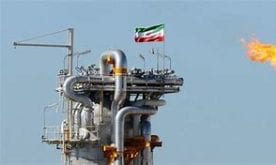RFL/RE – Frustration and skepticism are growing among Iranians as indirect talks between Tehran and the United States aimed at reviving a landmark nuclear deal remain mired in delays and disputes.
When Iran and world powers signed the accord in 2015, it triggered euphoric scenes across the Islamic republic. Many Iranians hoped it would spell the end of years of crippling international sanctions.
But that optimism gave way to anger as U.S. President Donald Trump in 2018 withdrew Washington from the deal and reimposed harsh sanctions that hit the Iranian economy and sunk the value of the rial, Iran’s national currency. Tehran responded by gradually exceeding the limits imposed by the pact on its nuclear activities.
After assuming office in January 2020, President Joe Biden said he was willing to rejoin the pact if Iran returned to full compliance. But negotiations between Tehran and world powers that started in April in Vienna were put on hold in June after the Islamic republic elected hard-liner Ebrahim Raisi as president.
Since the talks resumed in late November after a five-month hiatus, the negotiations have been protracted and inconclusive, prompting growing doubt and exasperation among ordinary Iranians.
“I think the talks will not achieve anything and the [economic] situation will become even worse,” a woman in Tehran, who did not want to reveal her name for fear of authorities, told RFE/RL’s Radio Farda.
‘People Are Being Crushed’
Many Iranians are struggling as the Middle Eastern nation of some 84 million grapples with soaring inflation and deepening poverty.
For many Iranians, the depreciation of the rial against the U.S. dollar has become a barometer of Iran’s troubled economy.
“Every time the price of the U.S. dollar goes up, my body starts shaking because I know that the prices of all [goods] will increase,” a mother-of-two in Tehran told RFE/RL. “People are being crushed under this [economic] pressure.”
“Obviously, I want the two sides reach a deal in Vienna, but I don’t have high hopes due to the [hard-line] stance of our politicians who are busy saber-rattling,” she added. “Before, they would say Trump is to blame, but now Trump is gone so [it shows] they’re the problem.”

The seventh round of talks in Vienna that began in November were adjourned last week to allow Iranian negotiators to return home for consultations despite what European diplomats described as a “disappointing pause.”
A firm date for the resumption of the negotiations has not been announced yet. But EU foreign policy chief Enrique Mora, who coordinates the talks, has expressed hope that they will resume before the end of the year.
The uncertainty over the talks sent the value of the rial tumbling.
“They’ve been negotiating for several years, then they return [without any progress], and now the value of the U.S. dollar goes up and chicken becomes more expensive,” said a man in Tehran. “Both sides are to blame.”
‘A Political Game’
Other Iranians point the finger at their own leaders.
Reports have suggested that Iranian negotiators have walked back on many concessions Tehran made during the previous six rounds of talks under former President Hassan Rohani. The former leader, a relative moderate, had accused his hard-line opponents of obstructing efforts to reach a deal.
“[Hard-liners] used to say that sanctions are not a problem,” another man in Tehran said. “Now they say we must talk [to remove the sanctions]. If the sanctions are not a problem, then why are they negotiating? If the sanctions are problematic then why did they try to stop [the previous government]? It’s a political game.”
U.S. officials have warned that time is running out to revive the deal, which curtailed Iran’s nuclear program in exchange for lifting international sanctions.

Raisi has said that his government will aim to secure the lifting of U.S. sanctions even as he said the economy should not be tied to “the will of foreigners.”
Ordinary Iranians fear they will ultimately pay the price for failure at the negotiation table.
“People will be crushed,” a man in Tehran told Radio Farda.
“More and more people will try to emigrate because of hopelessness,” a businesswoman in the central city of Isfahan told RFE/RL. “[Iran’s leaders] have been defending the nuclear program while people have been paying the price of sanctions and pressure.”
- Golnaz EsfandiariGolnaz Esfandiari is a senior correspondent with RFE/RL.
 Shabtabnews In this dark night, I have lost my way – Arise from a corner, oh you the star of guidance.
Shabtabnews In this dark night, I have lost my way – Arise from a corner, oh you the star of guidance.



